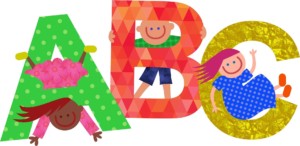About 5% of the children starting first grade have a speech disorder. It can affect any child, but how do you know if your child is struggling with communicating or speaking?
Here are a few signs your little one is experiencing speech and communication issues.
Stuttering
 It’s normal for children to make missteps when they speak and repeat words or phrases, but when it continues or becomes worse it can cause lifelong issues. American Speech Language Hearing Association (ASHA) explains.
It’s normal for children to make missteps when they speak and repeat words or phrases, but when it continues or becomes worse it can cause lifelong issues. American Speech Language Hearing Association (ASHA) explains.
Approximately 95% of children who stutter start to do so before the age of 4 years, and the average age of onset is approximately 33 months. Onset may be progressive or sudden. A fluency disorder is an interruption in the flow of speaking characterized by atypical rate, rhythm, and disfluencies (e.g., repetitions of sounds, syllables, words, and phrases; sound prolongations; and blocks), which may also be accompanied by excessive tension, speaking avoidance, struggle behaviors, and secondary mannerisms.
Pronounce words or sounds incorrectly
When a toddler mispronounces their Ss or Rs, it may be cute, after all many children experience this phase. But if it continues for a prolong period of time or becomes severe, they may benefit from a speech therapist.
Some children have speech problems because the brain has trouble sending messages to the speech muscles telling them how and when to move. This is called apraxia
Some children have speech problems because the muscles needed to make speech sounds are weak. This is called dysarthria.
 Excessive tantrums
Excessive tantrums
It can be very frustrating for a child when they aren’t able to communicate effectively. Studies show a link between problematic toddler behavior and speech delays. Revealing communication disorders can lead to tantrums, meltdowns, and aggressive behavior.
Increased emotional difficulties found in children with risk of development language disorder are likely a function of early language difficulties influencing other domains of development, specifically social interactions (parent and peer) and emotional self-regulation abilities. Clinically, this reiterates the importance of early identification and treatment of children with language delays or clinical level language disorders
How can you know for sure?
If you have concerns or questions about your child’s speech or language skills, we encourage you to contact First Words Speech Therapy.


